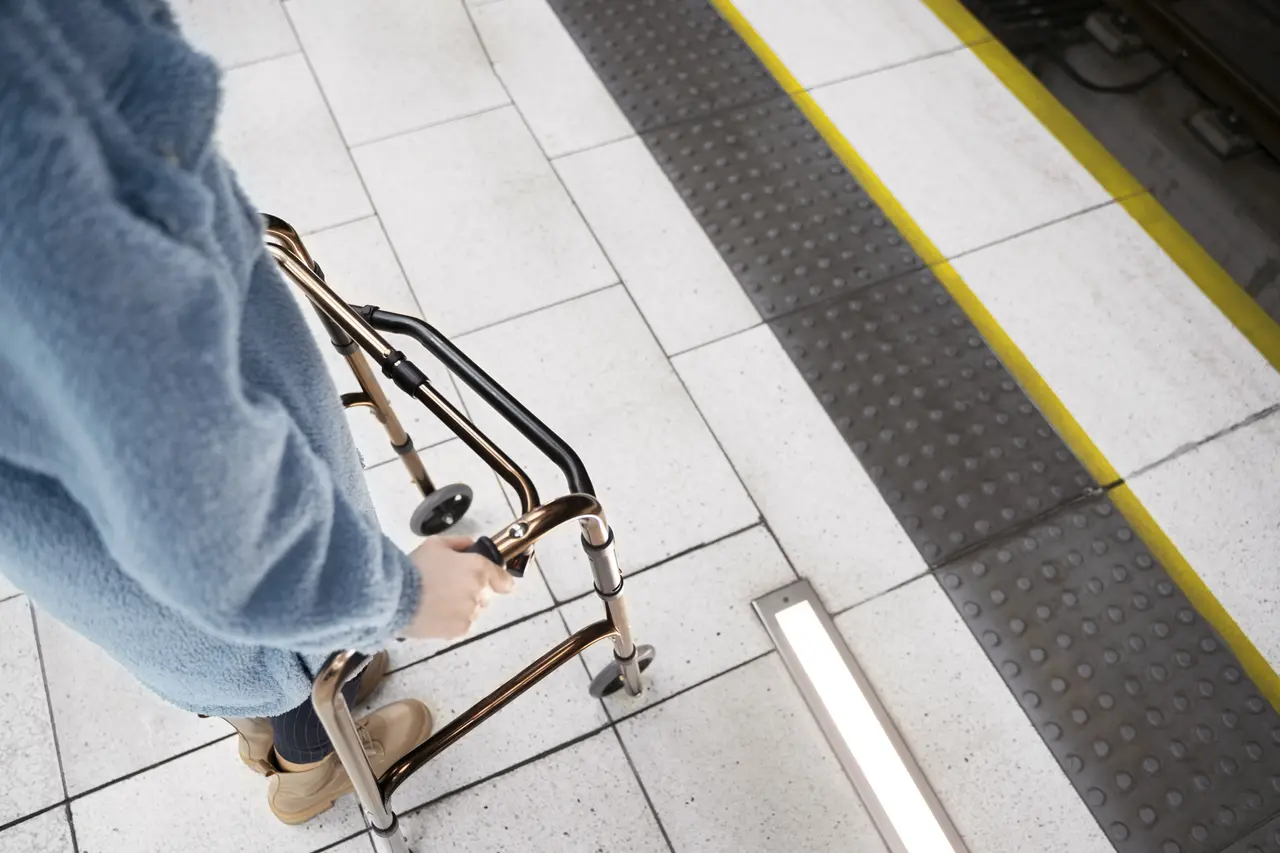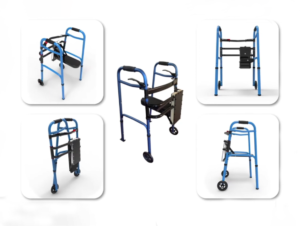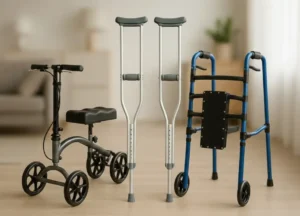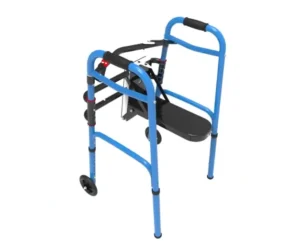Recovery from an injury or surgery can be a challenging journey, but having the right tools can make all the difference. One such tool that has gained popularity is the foldable walker. In this blog, we’ll explore how a foldable walker not only aids physical recovery but also enhances independence and confidence during rehabilitation.
Understanding the Role of Mobility Aids in Recovery
Mobility aids, such as walkers, are crucial for aiding individuals in regaining their balance and strength during recovery. They offer physical support while also preventing falls, which can be particularly dangerous for those post-surgery.
The right mobility aid can transform the recovery experience. It allows individuals to move from one place to another with confidence, enabling them to engage more actively in their rehabilitation process. Moreover, using a mobility aid like a foldable walker can significantly reduce anxiety related to falling or losing balance.
In many cases, a good mobility aid becomes much more than just a tool; it serves as a bridge to greater independence. When individuals feel stable and secure, they’re more likely to participate in daily activities and even return to social interactions, which is vital for emotional health.
Why Choose a Foldable Walker?
Foldable walkers provide unique advantages over traditional models, including ease of transport and storage. Their lightweight design makes them ideal for users who may need to travel to physical therapy or doctor appointments.
For individuals with limited physical strength, the ease of folding a walker can be a real game changer. They can easily fit them in the trunk of a car or maneuver them through tight spaces in the home, all while ensuring they’re ready for use within moments.
Additionally, foldable walkers can significantly enhance the user’s confidence. Knowing that they are equipped with a mobility aid that can be effortlessly managed encourages individuals to venture beyond their immediate surroundings, helping them reclaim their independence. This increased mobility can facilitate a more effective recovery, as engagement with different environments can promote physical and mental health.
Key Features to Look for in a Foldable Walker
When selecting a foldable walker, it’s essential to consider features such as adjustable height, sturdy construction, and added accessories like baskets or trays. These elements contribute to a more personalized and effective recovery experience.
Adjustable heights are particularly important since they ensure a perfect fit for the user’s height, thereby providing better ergonomics. A properly aligned walker minimizes strain on the back and arms, enabling users to maintain an upright posture while walking.
Furthermore, additional features like cushioned grips and lightweight frames can make a significant difference in the user experience. Investing in a walker with these thoughtful details ensures comfort during use, making it easier to incorporate into daily routines.
Finally, look for foldable walkers that come with storage options. Having a tray or basket allows users to carry personal items, freeing their hands for balance and adding convenience when they go about their daily activities.
The Psychological Impact of Using a Foldable Walker
Beyond the physical benefits, using a foldable walker can significantly enhance mental well-being. It instills a sense of empowerment and reduces feelings of dependency, allowing users to navigate their recovery on their terms.
For many, the act of using a mobility aid can feel like a step backward, a mark of perceived weakness. However, a foldable walker flips this narrative, serving as a symbol of strength and self-sufficiency. With each step taken using this tool, users often experience boosts in self-esteem and confidence.
It’s also important to note the social implications. Many users find that when they feel secure using a walker, they’re more inclined to leave their homes, participate in social gatherings, and maintain connections with friends and family. This social engagement plays a crucial role in emotional health, further supporting the overall recovery process.
Real-Life Success Stories: Foldable Walkers in Action
Numerous individuals have shared their journeys of recovery with the support of foldable walkers. These stories highlight how this tool has played a pivotal role in regaining mobility, confidence, and independence.
Take, for example, the inspiring story of Jane, who after a hip surgery, found herself confined to her home and overwhelmed by the prospect of using traditional walking aids. She discovered a foldable walker through her rehabilitation program, and once she began using it, her outlook changed dramatically. No longer feeling restricted, she was able to join her friends for coffee and attend community events, revitalizing her social life.
Similarly, there’s the story of Tom, an elderly gentleman who feared losing mobility following his knee replacement surgery. After integrating a foldable walker into his recovery routine, he found not only easier mobility but also the motivation to participate in exercises that had once seemed daunting. His progress inspired others in his community, showcasing the far-reaching impact that such mobility aids can have on recovery journeys.
Embracing Recovery with the Right Tools
In conclusion, a foldable walker can be a game-changer for those on the road to recovery. By providing support, mobility, and convenience, it fosters quicker healing while promoting dignity and confidence. Whether you’re recovering from a minor procedure or a significant injury, investing in a foldable walker could very well expedite your path to wellness.




